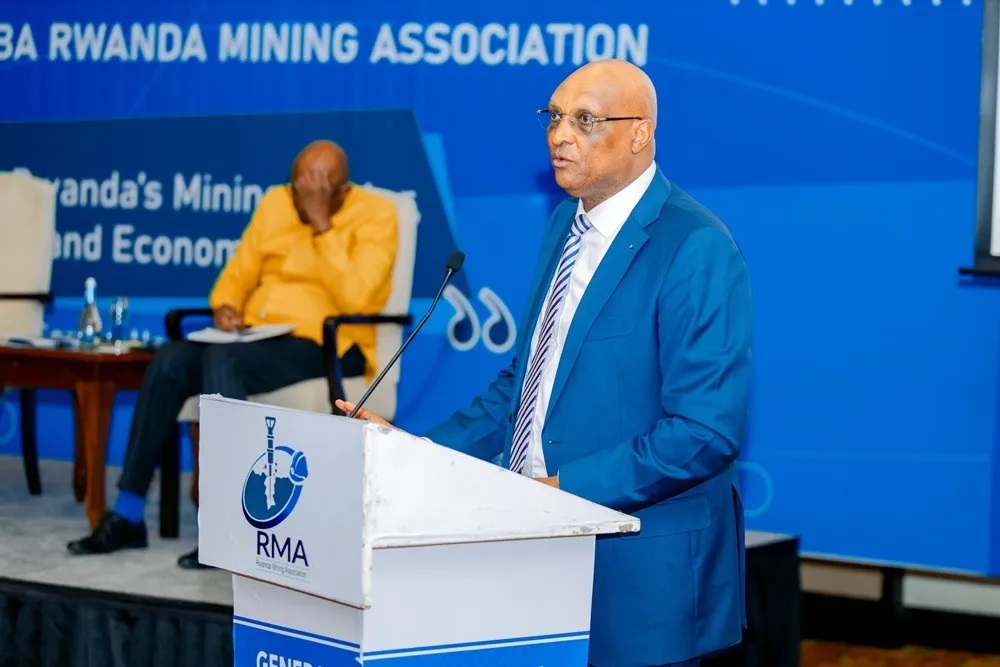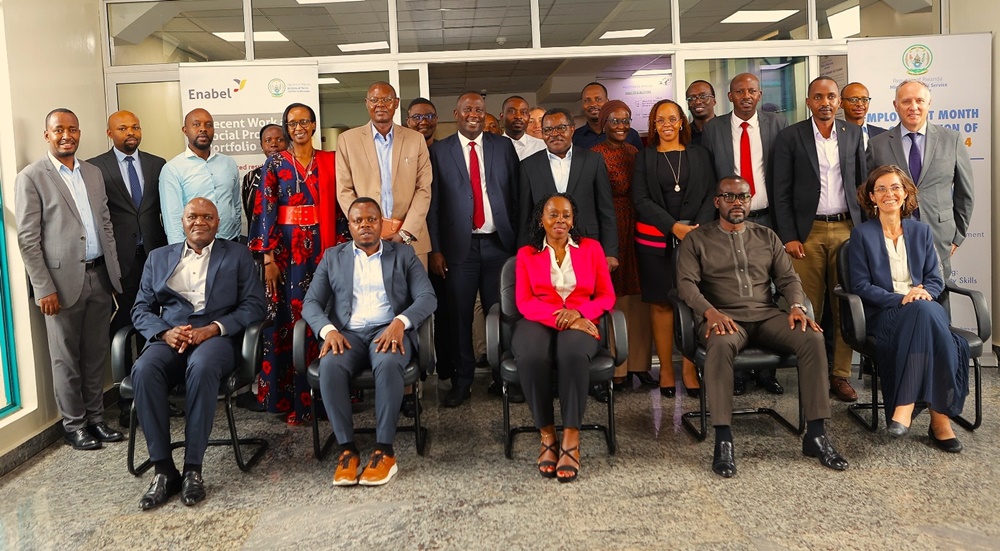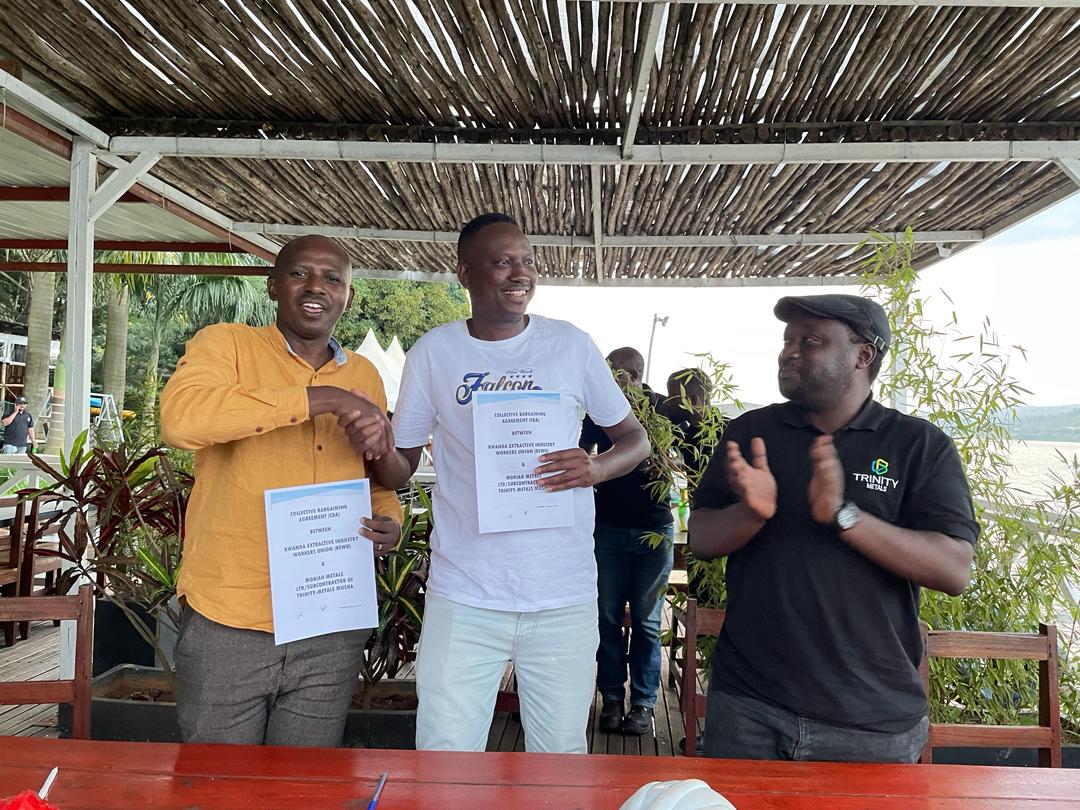Rwanda Mining Association General Assembly discuss Proposal for a Sectorial Minimum Living Wage in Rwanda’s Mining Sector
The Rwanda Mining Association has on Thursday, 1st August , 2024 held a General Assembly to address various issues of the implementation of the new mineral tax law, the law on mining and quarry operations as well as the proposal put forth by the Rwanda Extractive Industry Workers Union to introduce a sectorial minimum living wage for miners.
Members of the Rwanda Mining Association said that a survey conducted in 2023 on living conditions of mineworkers, revealed that 81% of miners are currently paid based on production, while only 19% receive a monthly salary. Also, approximately 53% of miners may not reach productivity per week, hence, they aren’t remunerated, which has had a significant impact on their livelihoods.
Eng. Mutsindashyaka Andre, Secretary General of REWU, expressed concerns about the poor living conditions faced by miners who are not being paid because they have not been able to get minerals. He highlighted the risk of miners turning to illegal mining due to financial pressures and emphasized the need for fair compensation to prevent exploitation in the industry.

Eng. Mutsindashyaka Andre, Secretary General of REWU
“There are two main issues faced by those who work without pay. Firstly, they struggle with poor living conditions as they are unable to support their families. Secondly, those who are unable to secure production may turn to illegal mining, putting themselves at risk of accidents in collapsing mines. Additionally, the lack of income can lead to conflicts within families, as suspicions arise regarding the misuse of resources.” Eng. Mutsindashyaka explained.
The Rwanda Extractive Industry Workers Union has proposed to the Rwanda Mining Association which represent employers of mining sector, a sectorial minimum living wage of Rwf 4,000 for miners who are unable to achieve production, with key stakeholders of mining sector later discussing a minimum living wage and reached on Rwf 2,000 per day for these workers.
The Chairman of the Rwanda Mining Association, Jean Malic Karima, reiterated the importance of establishing a minimum living wage to ensure that miners have the financial resources to support themselves and their families.
He says, “Our line of work demands a great deal of energy, therefore it is essential for workers to be fairly compensated. Unfortunately, there are mining companies and employers who fail to adhere to this principle. It is imperative that we continue to advocate for the establishment of the minimum living wage and raise awareness among all stakeholders. It is crucial that workers are adequately rewarded for their efforts, enabling them to sustain themselves and support their families.”
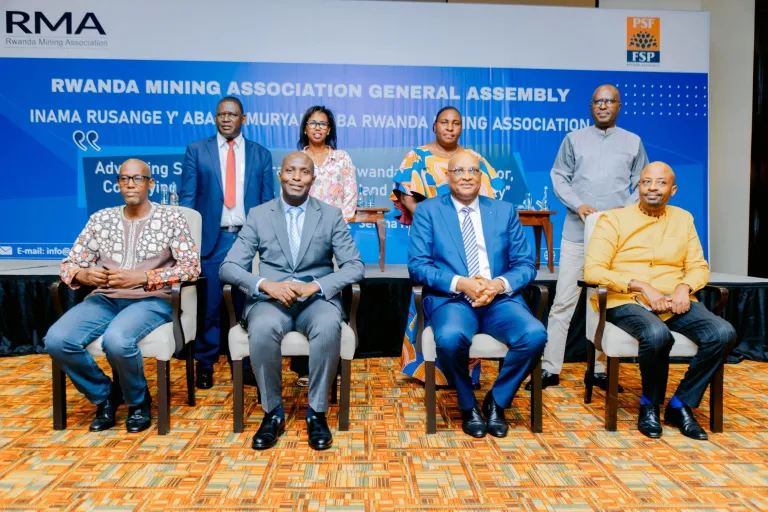
Jean Malic Karima adds, “As we have brought it to the general Assembly again, I think you have heard that we will again ask for another meeting, which will deeply examine this bringing together all involved including those who have started to comply with the initiative, and those who have not started complying with it, then we will see what we can agree together.”
Kamanzi Francis, CEO of the Rwanda Mines, Petroleum and Gas Board, emphasized the government’s commitment to addressing issues within the mining sector, including the lack of the sectorial minimum living wage for those who have not achieved production.
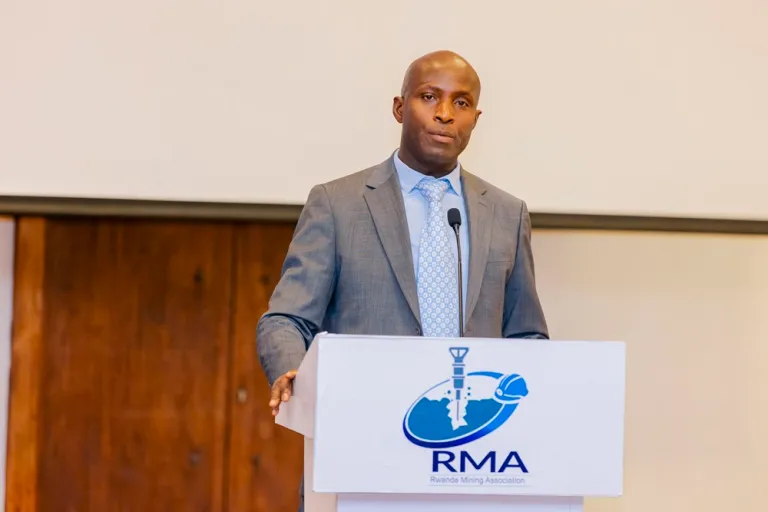
He stressed the need for professional mining practices to prevent illegal activities that endanger lives.
Many mining workers currently do not have contracts related to their work, which has led to difficulties in accessing loans and securing retirement benefits.
The members of the Rwanda Mining Association and other stakeholders at the meeting agreed to address the challenge and ensure fair treatment for all miners in the industry.

